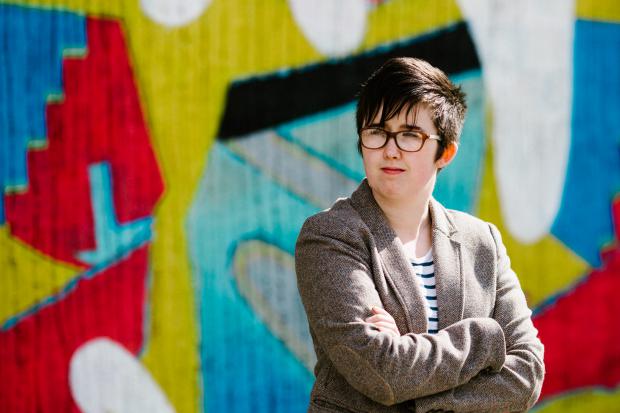John Hume showed us how to really fight - and what is worth fighting for
Image: Pacemaker
There’s a picture I’ve seen popping up a lot online since the death of John Hume was announced on Monday. If you didn’t already know the name, and you haven’t paid much heed to the tributes since, then it gives a very good glimpse of who he was, and why he meant so much to so many people, in Northern Ireland and beyond.
I’m not sure where or when it was taken, though the look of the police tells me it’s the early days of the conflict, most likely in Hume’s native Derry, a city that’s had more than its fair share of pain in the last 50 years, but whose daughters and sons have brought it more than its fair share of honour. If Belfast has always been Northern Ireland’s heart, then Derry is its soul.
We’ve had a lot of these images on our screens recently, men in riot gear advancing on ordinary citizens. I don’t know if you’ve ever seen that on your own home streets. If you have, then you’ll know how much courage it takes to step out into the middle of it.
In the photograph, you can see Hume is standing up to them. But it’s not a confrontation. The gesture is one we all know: calm, patience, slow down, take a moment, this isn’t the way. You probably think they won’t pay much attention, and you’re probably right. But that’s not what’s really at stake. That’s not why I think this picture so powerfully sums up his legacy.
At the edge of the image, two teenagers are watching. Waiting to find out what you do, how to handle a thing like this when it walks through the middle of your life. And to me, this is the point. Hume’s gesture is really for them. It’s for all the rest of us, asking how we should respond when our voice is ignored, when the forces of justice are standing up for injustice, and diehards on both sides are baying for blood.
I grew up in a time and a place when “culture war” wasn’t a metaphor
John Hume’s work in politics, especially in his later life, was to stake out this territory in the middle. He held that empty ground for decades, him and a few others, when the pressure from all sides was to close the gap, and polarise.
Because what middle ground can there be in the politics of Northern Ireland? One side says the place is part of the UK, the other says it’s part of Ireland. Neither can accept any version of the other’s position without abandoning its own. So compromise can easily look impossible.
That’s why it is such an act of courage to declare there really is a space in between, when you still can’t see anything tangible to fill that space, and there’s no good reason to think anything ever will.
But that’s the point. The potential is the point, creating the space simply to prove it exists, that it must exist. What belongs there will come later, but the great act of faith is to stand between those two extremes and say, this where we’re going to have to live, all of us, some day, and every day. So why not start now?
We need to see this image again. It feels to me that the middle space is squeezed further every day. More and more in our politics now we hear from voices, once marginal, who don’t want any compromise, who try to stir it up, and kick things off, and cling on to their privilege, and have their culture war.
But I grew up in a time and a place when “culture war” wasn’t a metaphor. People were murdered every day for their allegiance to an idea, to a vision of the world that the other side wanted to suppress.
‘We all measured ourselves against John Hume, and came up short, and tried to do better’
How we act always matters, in big ways and small, online, in the street, in the public sphere. People are watching, whether we know it or not, refining their own sense of what’s possible, and acceptable, and right. And in the moments when the stakes are so high, and no one has done this before, everyone leans forward, to see who’s going to step up, to find an example of how to respond.
So I watch those teenagers watching Hume, and witnessing his courage, his integrity, his faith, and I feel very lucky to have had the example of a man who showed me what I needed to see: that idealism is noble, that principles are sacred, that you don’t stop until justice is done. And I wonder who will fill that space the next time we have to watch a similar scene.
Real equality always means someone else will lose their privilege, of course it does, that’s the whole point. But in John Hume I saw that you don’t have to hurt anyone to fight, and you don’t always have to fight to win, and you don’t even have to win to get what you really need. We all measured ourselves against him, and came up short, and tried to do better. My privilege now is to take for granted what seemed for long a fantasy: a lasting peace in Northern Ireland. But he saw it was possible. He showed us that space between. It’s ours to grow into.

